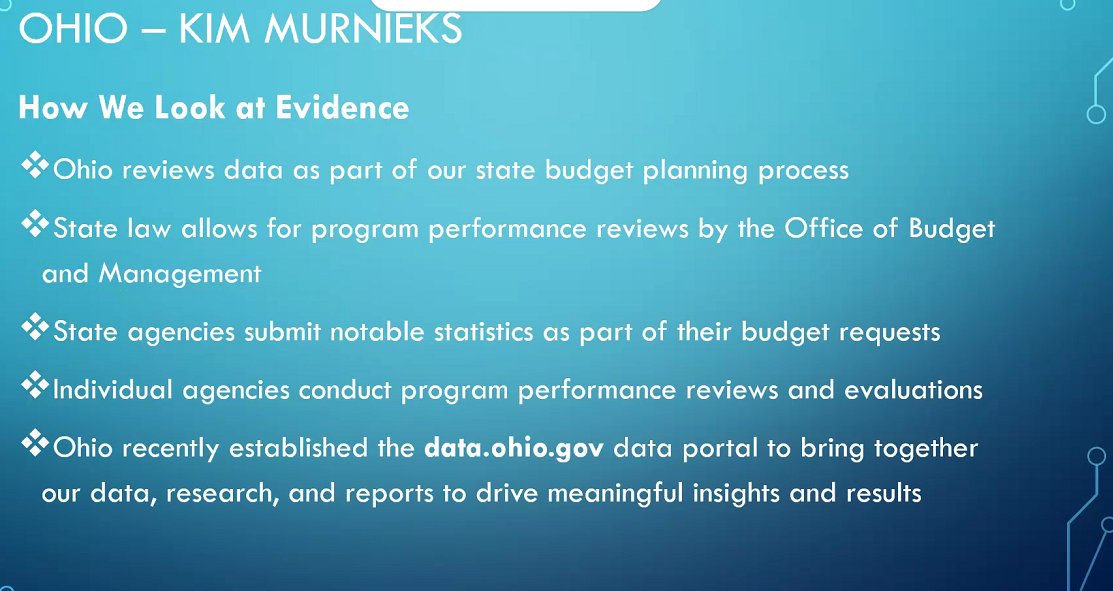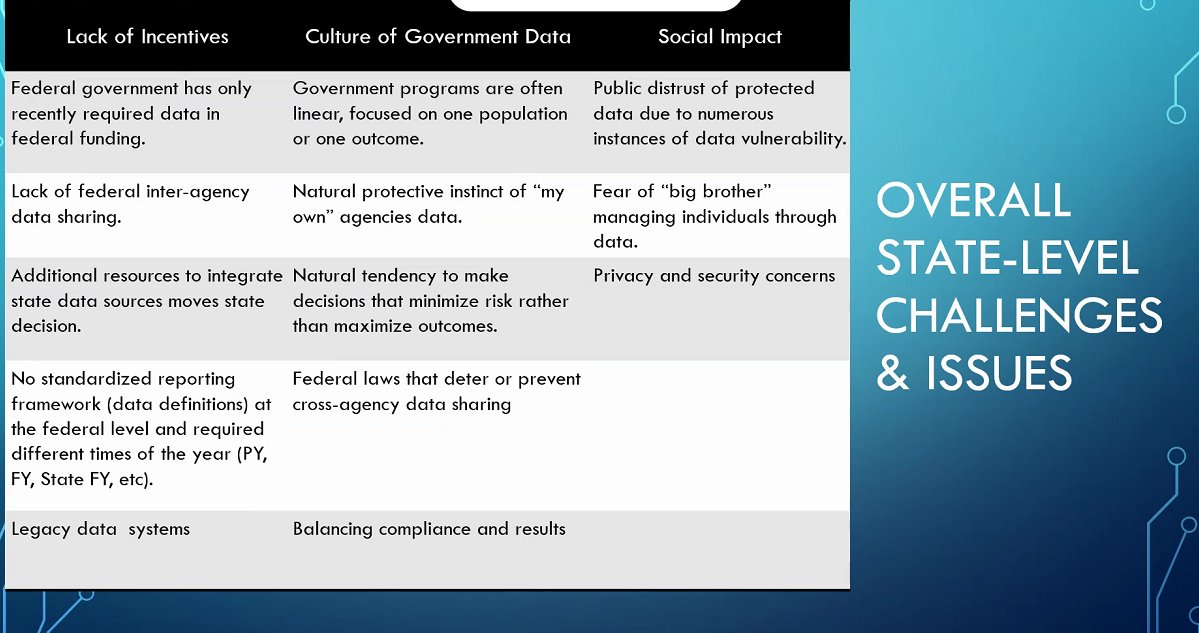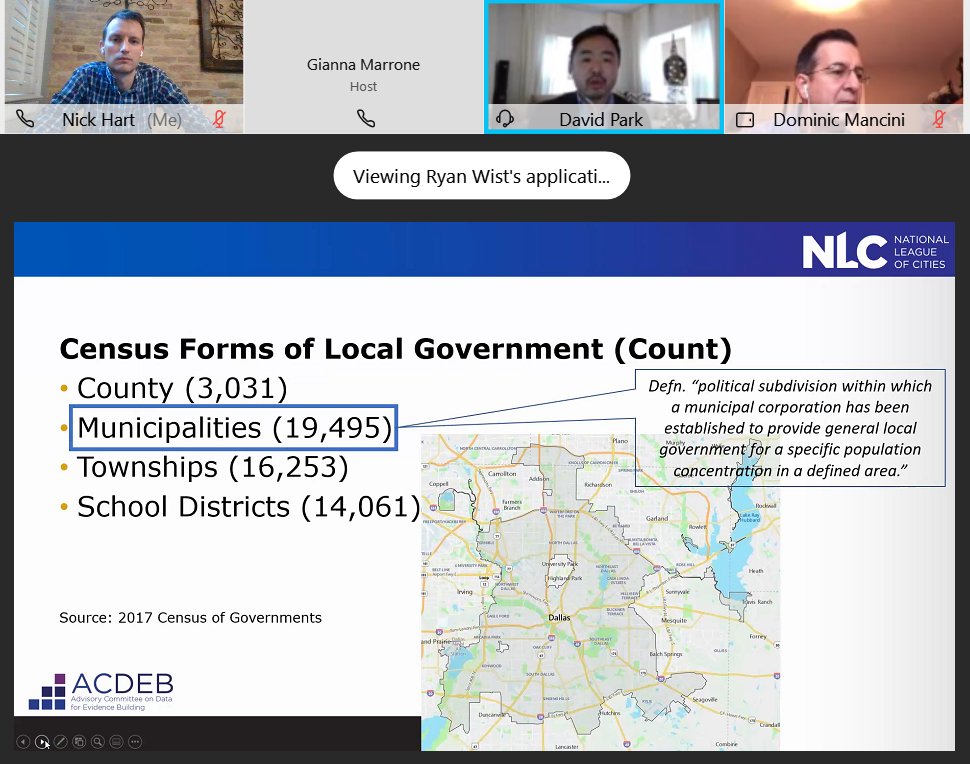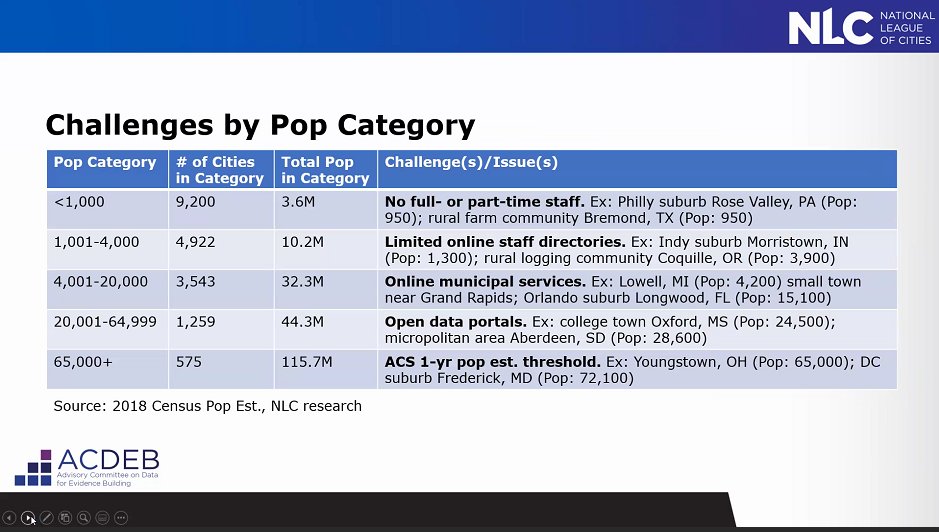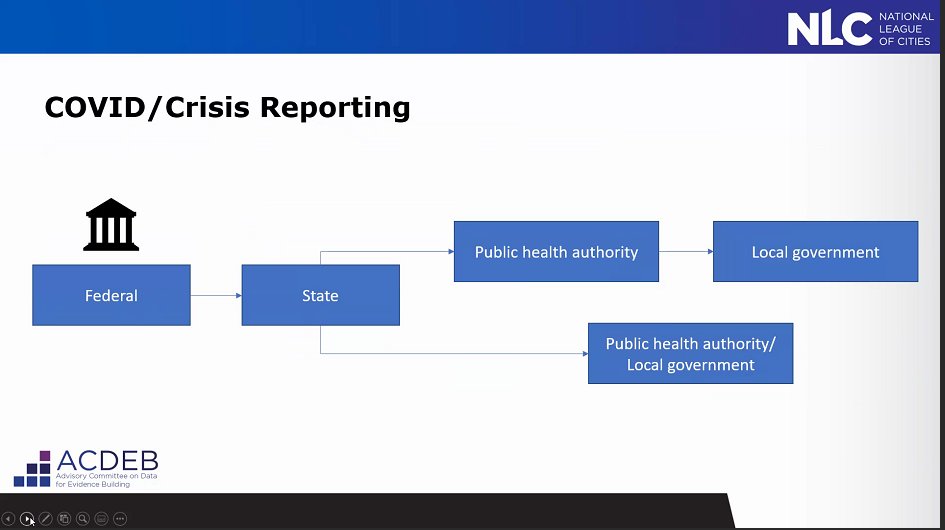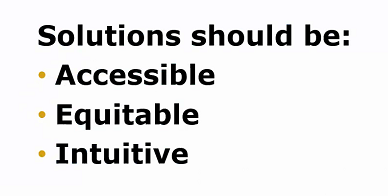The Advisory Committee on Data for Evidence Meeting is beginning its final meeting of 2020. A thread  : #EvidenceAct /1
: #EvidenceAct /1
 : #EvidenceAct /1
: #EvidenceAct /1
Chair Dom Mancini announces publication of new Request for Comment for the public to provide input. Comments due in early February. / 2 https://twitter.com/NickRHart/status/1338489320475398144?s=20
Julia Lane begins discussion of international perspectives on data linkage and protection. Lots to cover here -- but we all learn a lot from the experiences of other countries. /3
A Key problem according to Julia Lane -- based on the experiences in the UK for running data linkage resource centers: "the ongoing running costs may not be valued as money" /4
Julia Lane: "It's not enough to just build the infrastructure." Discussing key lessons learned internationally. /5
Lane -- New work in Germany from their data forum, a long-term infrastructure between scientists and data producers. "A long-term trust relationship" is at the core. /6
Lane -- stresses importance of the infrastructure being "community-driven" with suggestions about how to include engagement and participation. /7
Lane -- "We need to know what works, for whom..." is a strong explanation of the value proposition. / 8 #WhatWorks #Evidencebased
What is the value of access to data? Would be a great area for future research, particularly in the US context / 10
Ken Troske offers reminder of the DataBank issues here in the united States in the 1960s. @CEPGovNews summarized the challenges in its final report in 2017: /12
Great discussion this morning of the international models for data sharing and linkage. Thanks to Julia Lane for sharing her expertise. Up next, state/local considerations. / 13
Anna Hui: how we look at evidence in Missouri. "COVID has certainly demonstrated...why data is needed and required in terms of our day-to-day decision-making." #EvidenceBased #Covid19 /15
Cool website featuring Missouri #opendata on recovery available here: http://showmestrong.mo.gov/data 16
Anna Hui -- hoping that Missouri legislature will create an official #CDO role in 2021. Yes! / 17
Anna Hui -- #Missouri recently created a data governance committee, which helps with state data sharing and collection issues. Has led to some "successes and products" already. /18
Really fabulous energy and effort underway -- in a Midwest Data Collaborative consulting across state lines. /19
Elizabeth Kovacs - "data is still considered a scary term. every time we use that term we get a little pushback." But "...trying to make sound #evidencebased decisions in South Carolina." / 20
Much of the work in Tennessee still decentralized, including analytics. Great #opendata resource from the state: http://openmaps.tn.gov/ /23
Christin Lotz: "Maintaining the security of our data and the privacy of our citizens' [and business's] data is paramount." /24
The work happening in Ohio is amazing. Their portal provides #opendata, and a one-stop shop for researchers to access restricted data. One system, integrated, useful, super valuable. https://data.ohio.gov/wps/portal/gov/data/ /26
Lots of challenges faced by states based on the examples we heard today -- incentives, federal partnership, standardization, legal systems, culture. /27
Kim Murnieks - hope this committee (ACDEB) can help in thinking about common schema for this work. Elizabeth Kovacks: "Standardization so that states can show that the feds are doing" ...and builds the case for states to do it. /28
Common scheme connotes the need for improved data standards. Boring topic to many -- but so critical. / 29
Christin Lotz -- federal restrictions on state-level data sharing are an issue.
This definitely merits more work from Congress and Executive branch agencies to break down these barriers. / 30
This definitely merits more work from Congress and Executive branch agencies to break down these barriers. / 30
While in break -- worth noting that the information about the Advisory Committee on Data for evidence Building is all available at http://www.bea.gov/evidence . Including slide decks and full presentations from meetings. / 31
 Important to remember -- we have lots of local governments. Lots! That has huge implications for data systems and infrastructure.
Important to remember -- we have lots of local governments. Lots! That has huge implications for data systems and infrastructure. Happening now -- David Park presents on perspectives from local perspective for #ACDEB.
David Park from @leagueofcities -- notes that mid-sized communities are those that typically have #opendata portals. /33
Park: "standards and definitions matter" for reporting, especially on #COVID19. "They may seem trivial" but are important. /34
Laila Alequresh summarizes key challenges faced by states. "if the goal is really to encourage #evidencebased decision-making..." need to recognize lots of data collected at local level may be reported up to fed'l gov't. /35 #ACDEB
Alequresh -- stresses need for a unique identifier to join datasets across agencies. Translation -- we need data standards and linkage keys. /36
Excellent point -- if we have clear national data standards, everyone's work becomes easier and more interoperable. Geospatial, entity identification, etc. It's a long list of much-needed data standards in the US. This requires fed'l gov leadership. / 37
Alequresh - federal gov't a model for data skills, but local gov't still playing catch-up. "If we can make the system easier...and simplify the interface...will encourage buy-in and trust..." / 38
Alequresh from local perspective -- don't forget about outcome data. /39 #eval
In discussion -- noted that sometimes the federal #COVID19 data is a bit dated, that affects the local gov't ability to make good decisions.
We definitely need more rapid collection and dissemination capabilities, especially when we are focused on emergency response. / 41
We definitely need more rapid collection and dissemination capabilities, especially when we are focused on emergency response. / 41
Cool #opendata resource from Dallas on #COVID19 indicators. Well done to the team there in pushing this out so clearly in partnership with @tableaupublic https://public.tableau.com/profile/cityofdallasdtxinnovationteam/vizhome/CityofDallasCOVID-19Dashboard/Dashboard1#!/ /42
That's a wrap for today's meeting. In january, we'll hear from the federal statistical system and evaluation officer representatives on the committee. In February, the federal #CDO community will present. See you at future meetings! / END

 Read on Twitter
Read on Twitter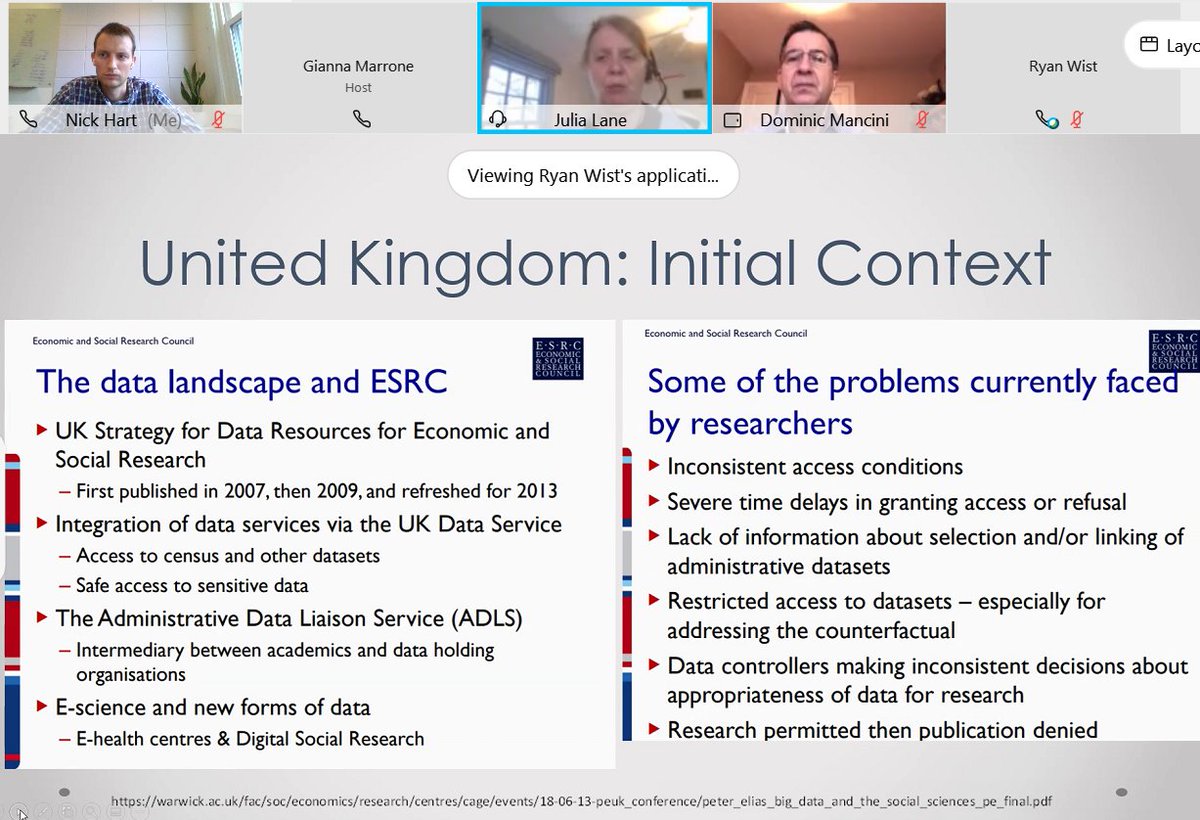
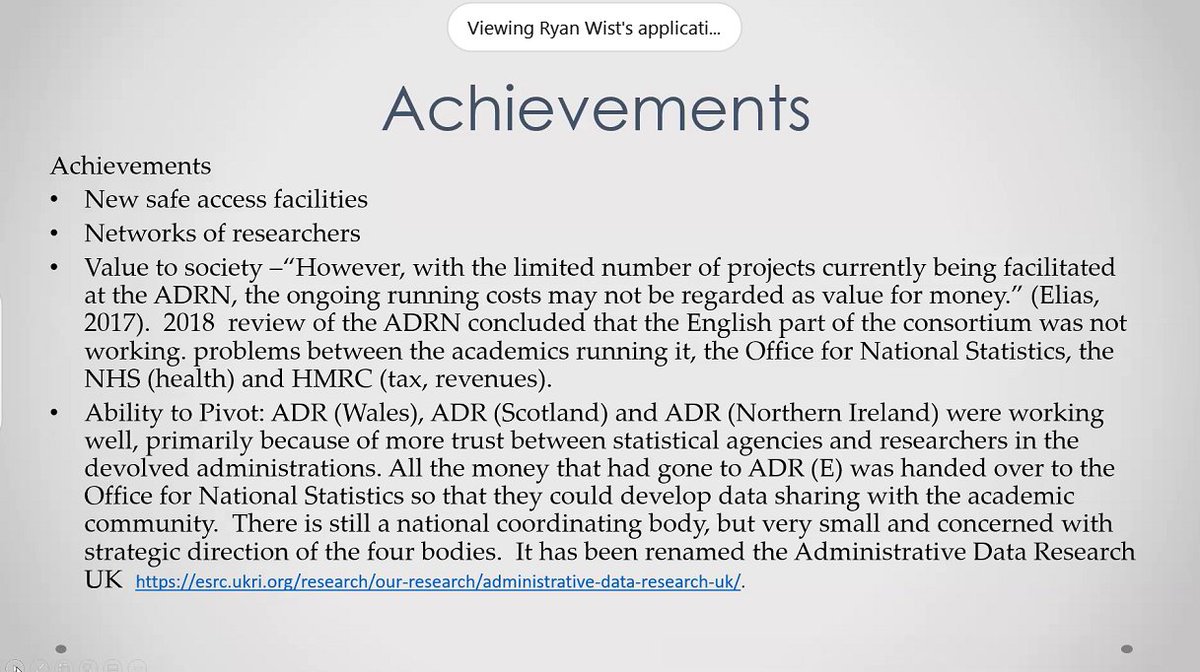
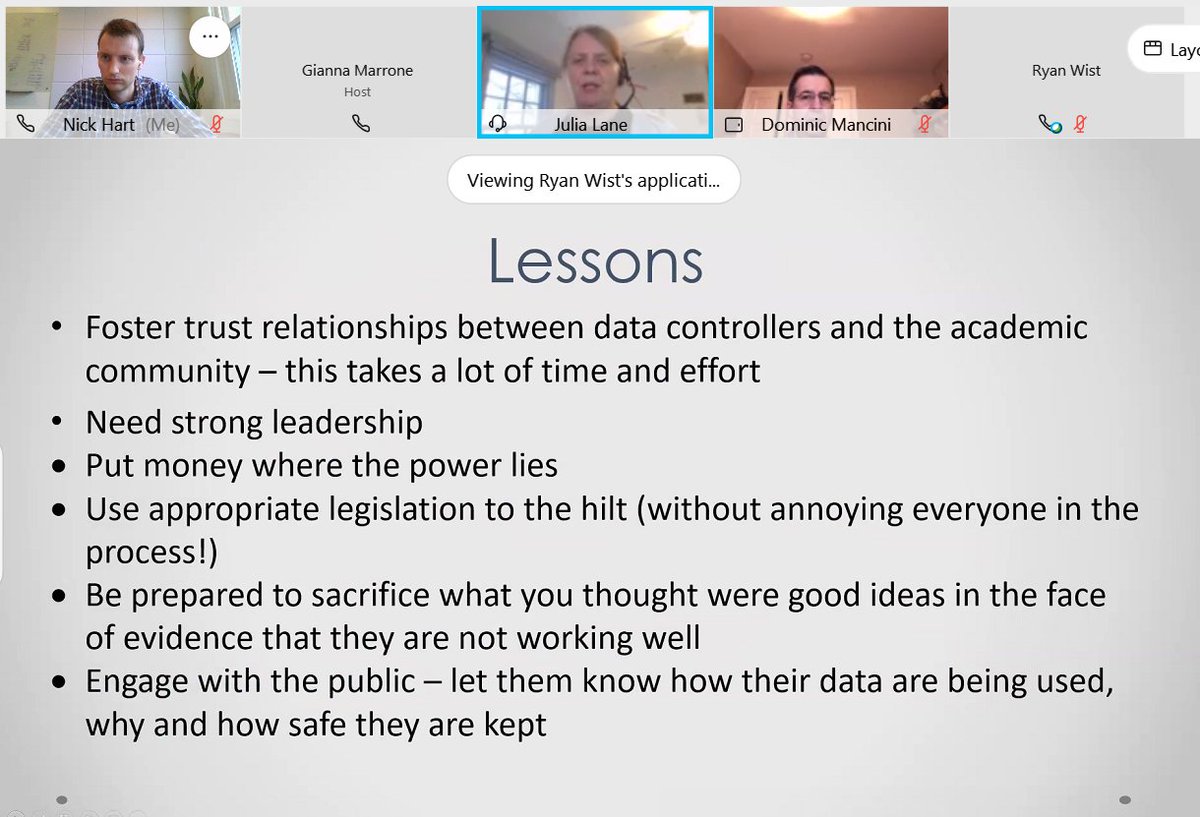
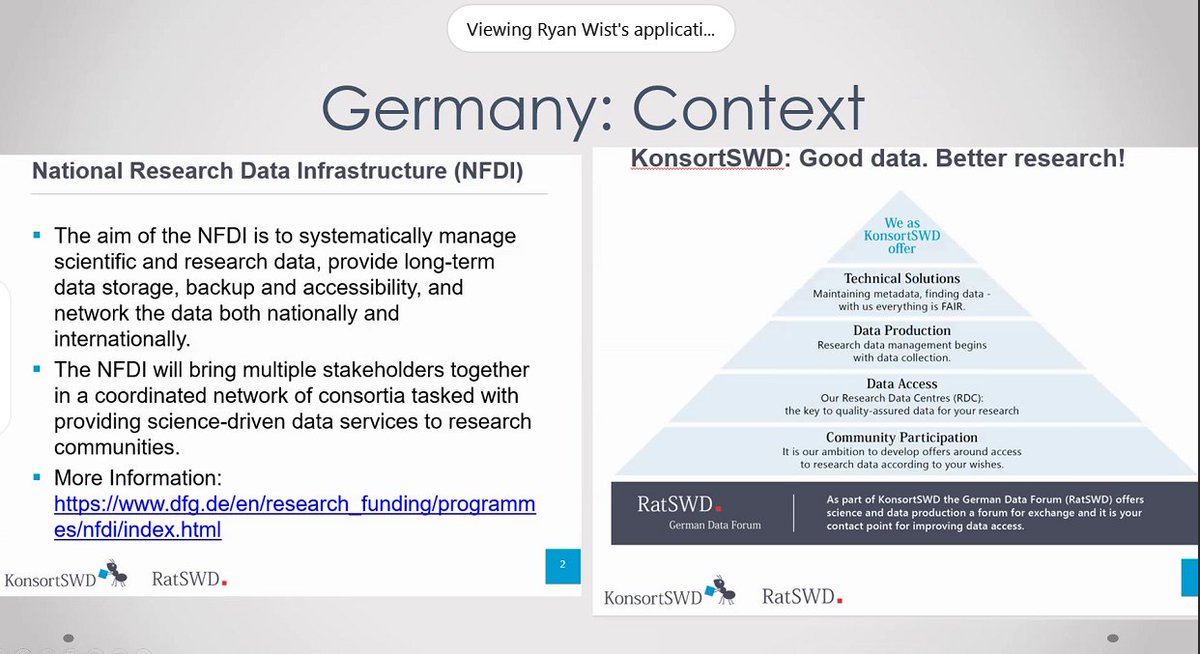

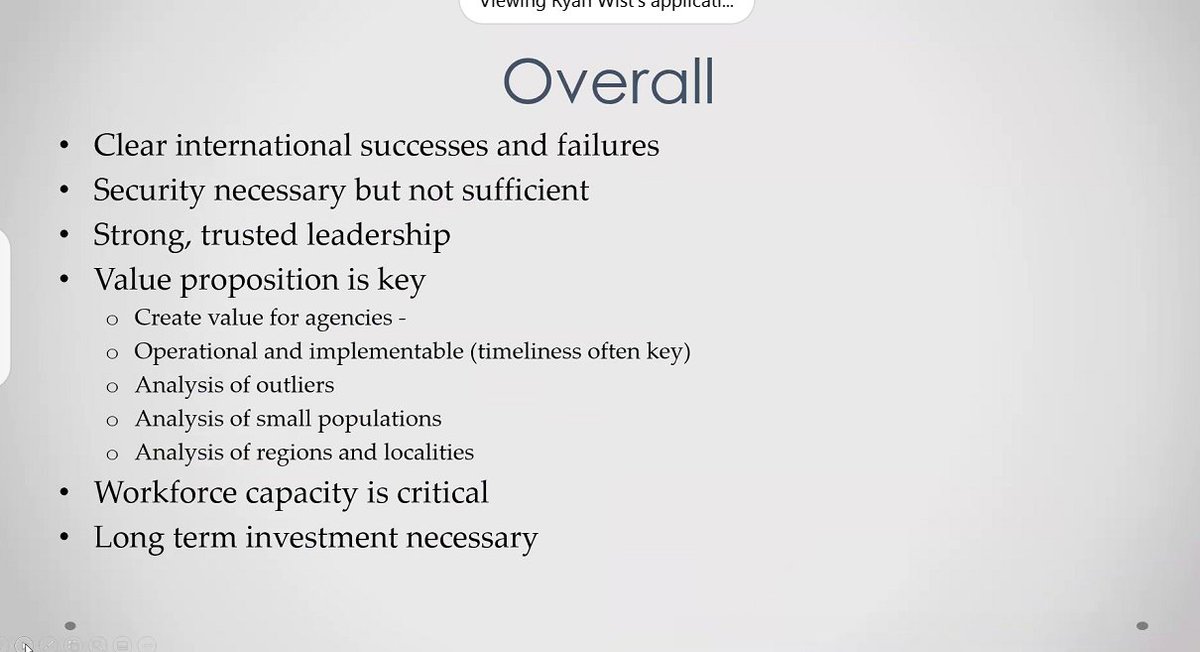
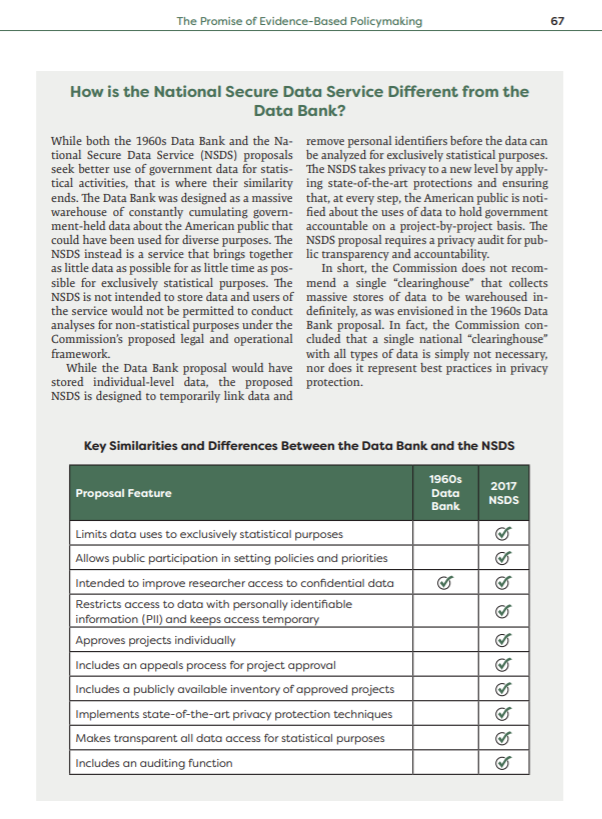
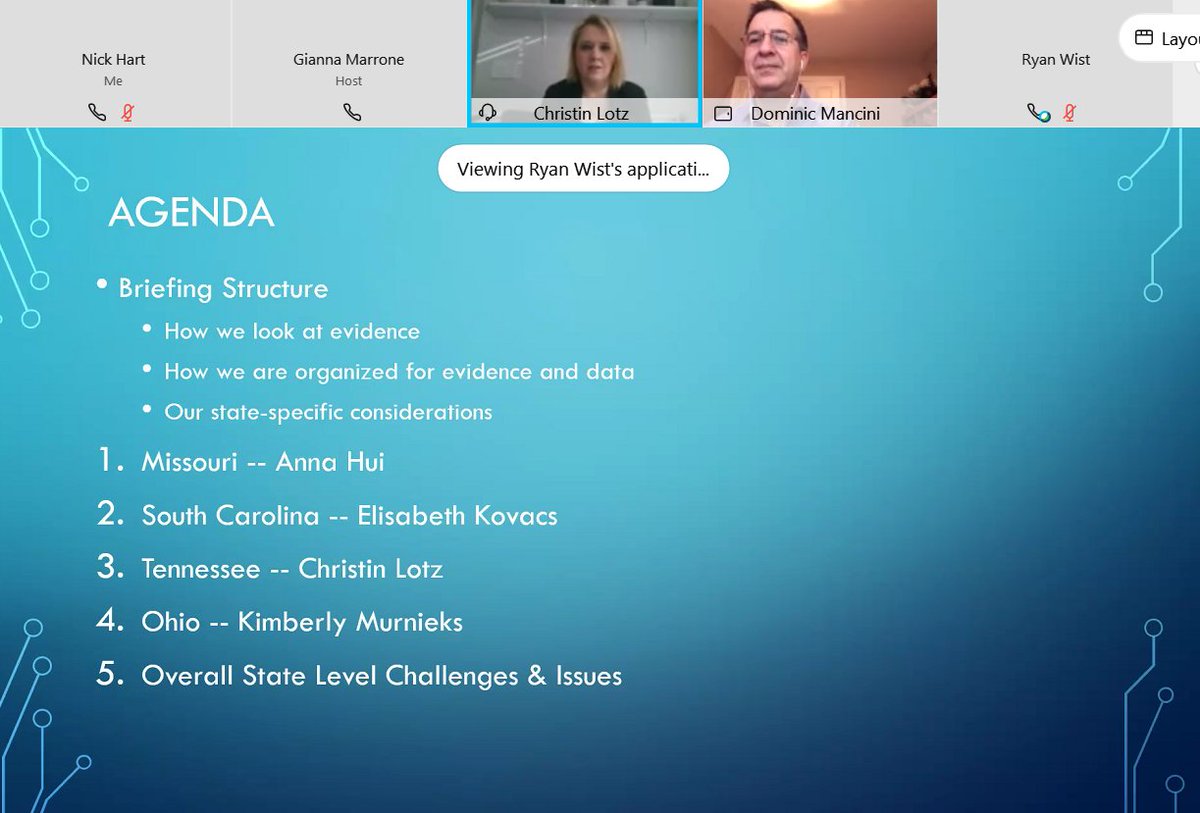
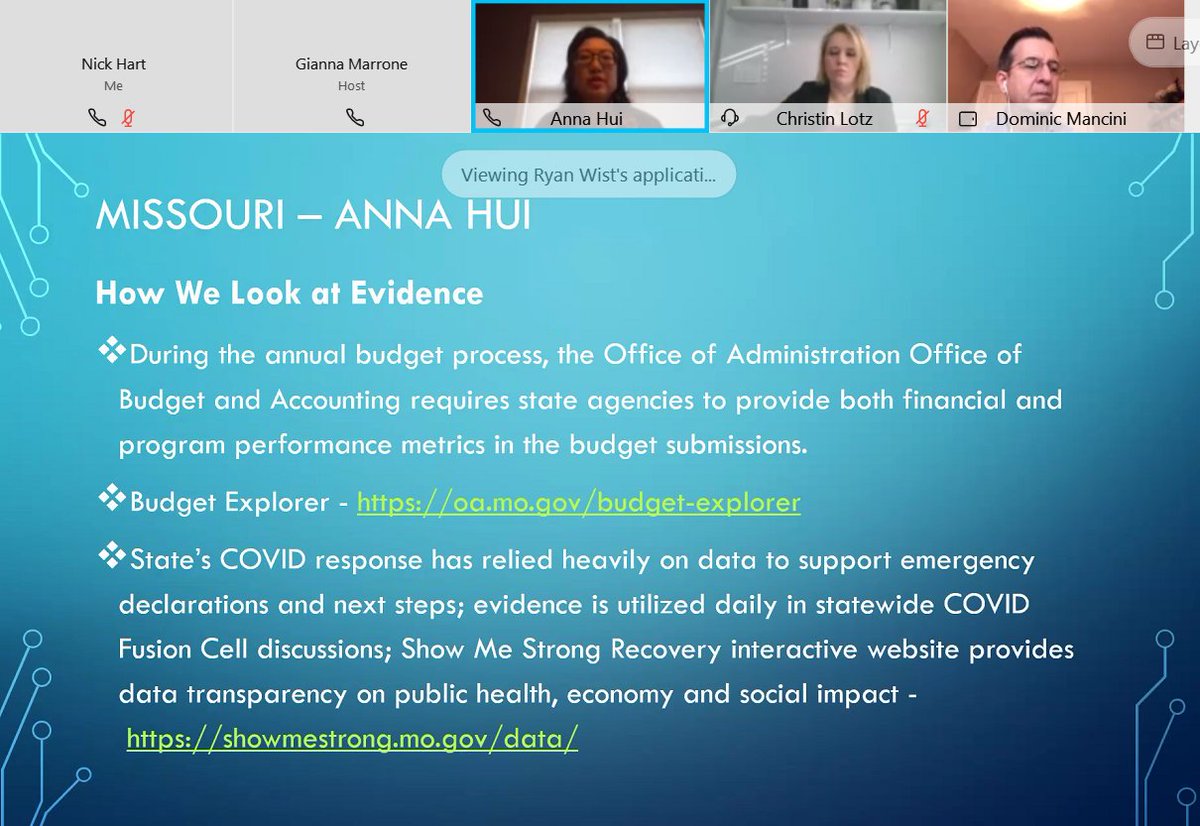
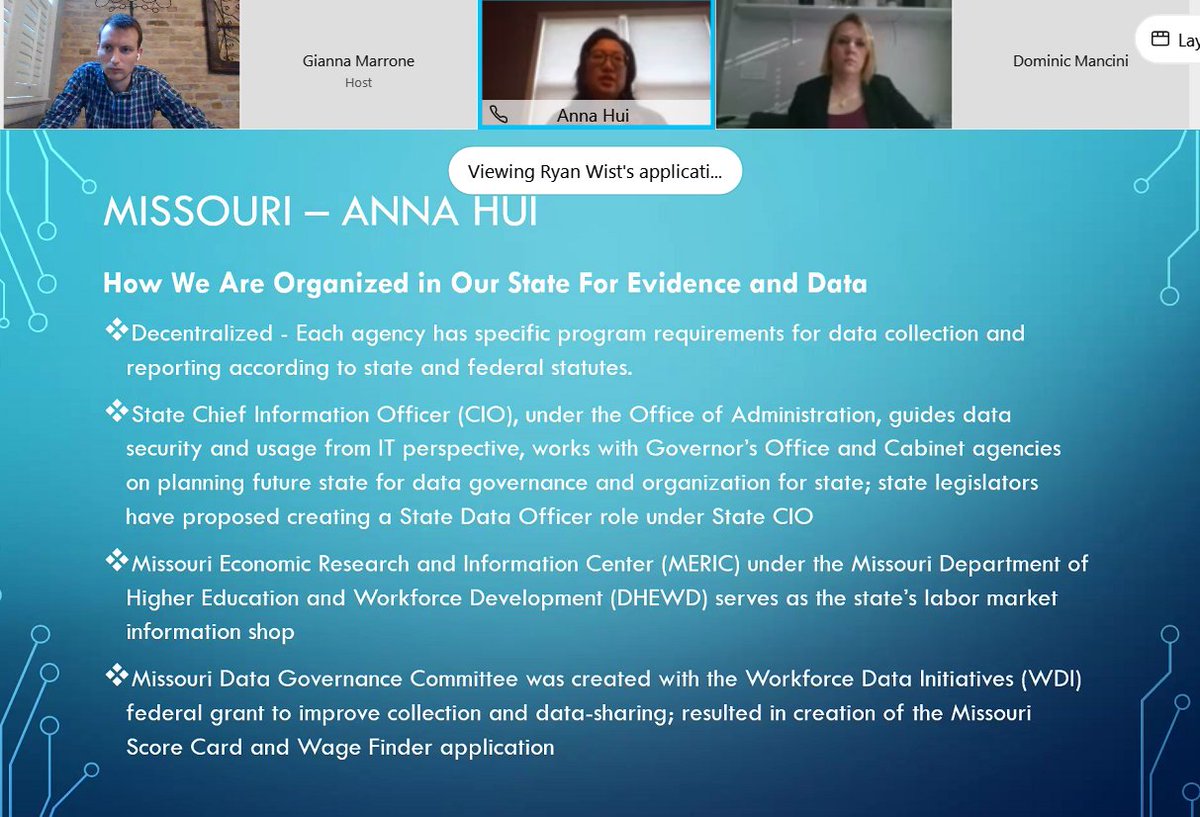
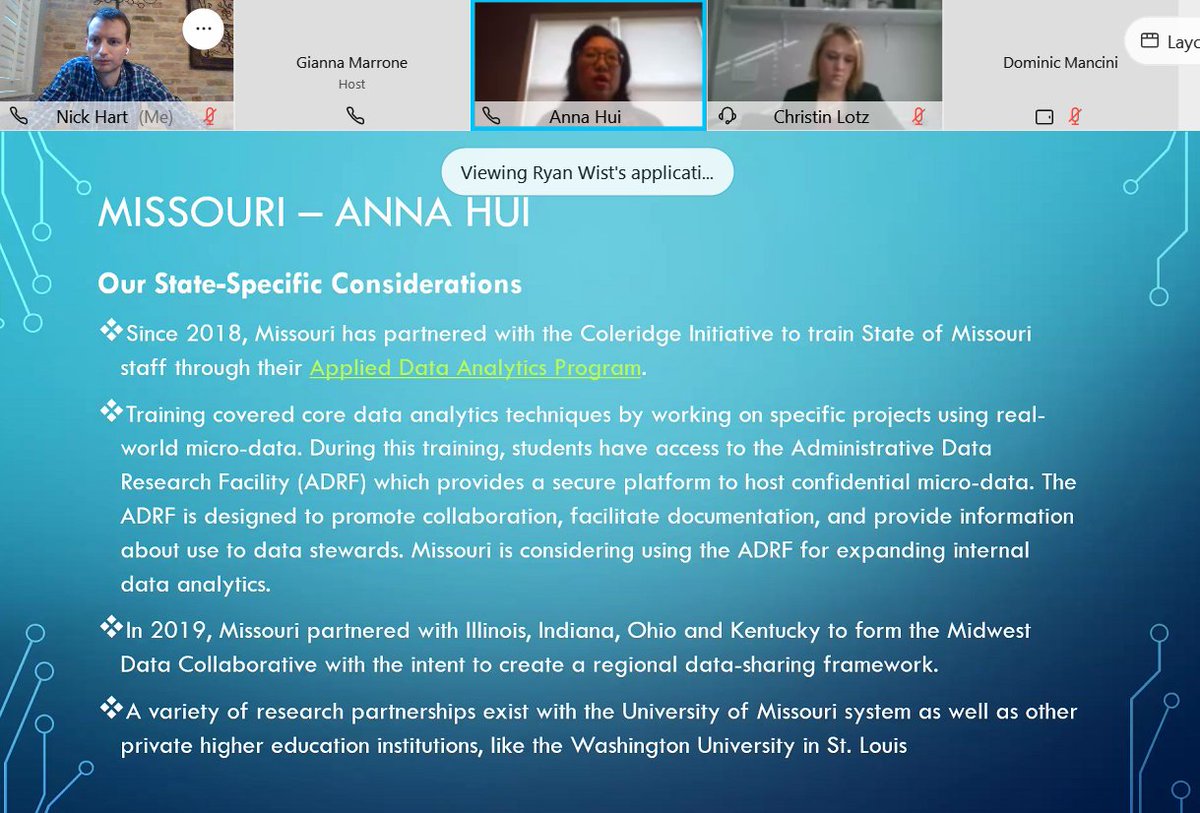

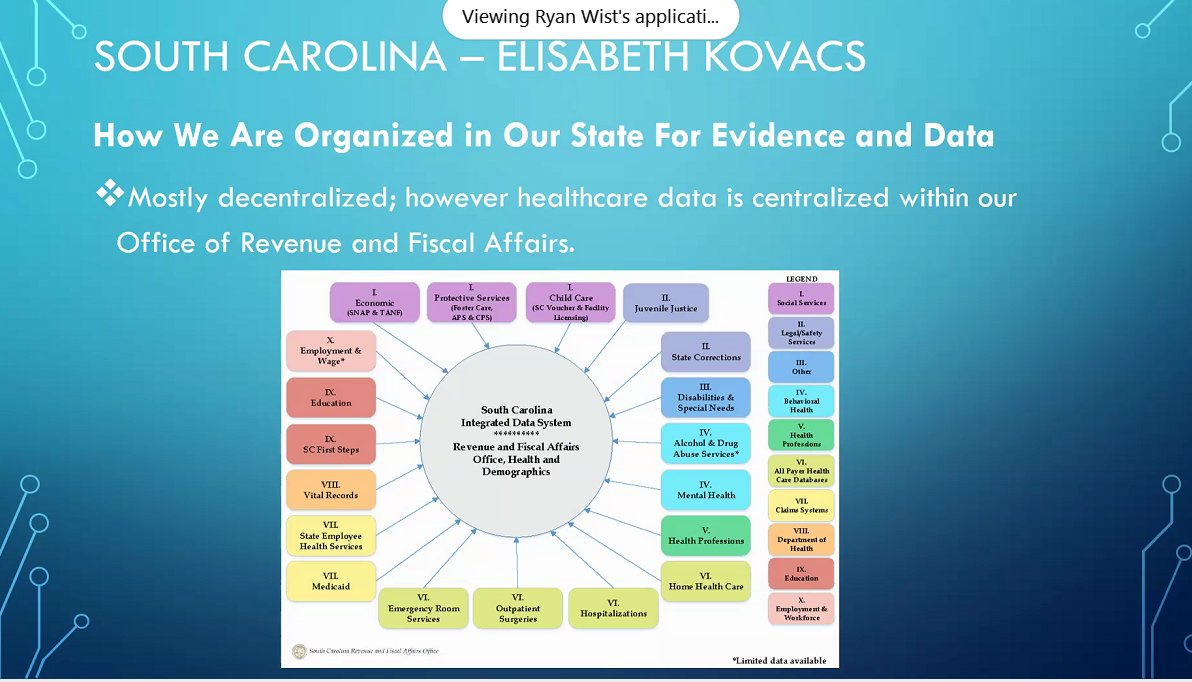
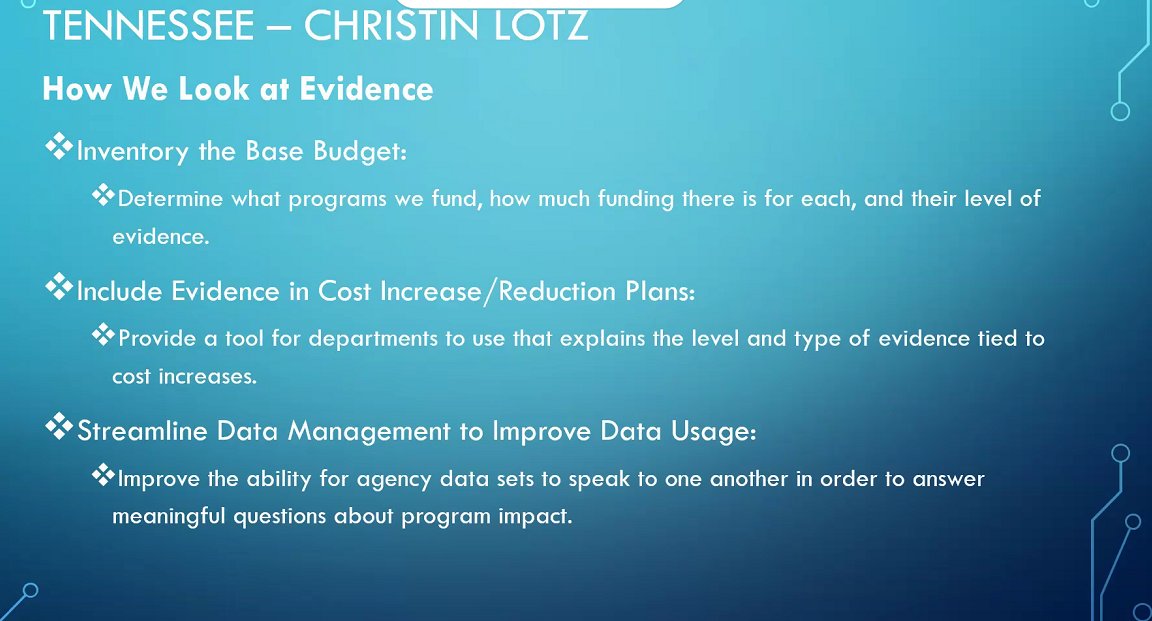
![Christin Lotz: "Maintaining the security of our data and the privacy of our citizens' [and business's] data is paramount." /24 Christin Lotz: "Maintaining the security of our data and the privacy of our citizens' [and business's] data is paramount." /24](https://pbs.twimg.com/media/Eph8yzgWwAEWYLR.jpg)
